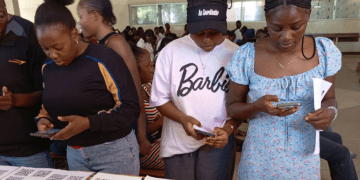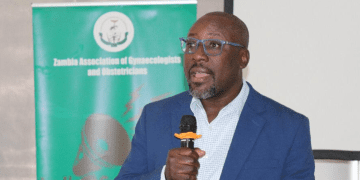Job Description and Person Specification: Community Facilitator: Patient-centred sickle
cell disease management in Africa (PACTS)
Background and aims of study
In Sub-Saharan Africa, around 1/50 babies have sickle cell disease (SCD) and 50–90% die
before the age of 5 years. SCD is a genetic abnormality of red blood cells and a major public
health priority. It causes anaemia, sudden severe pain, and eventually damages organs
(lungs, brain, kidneys). In high-income countries, most SCD patients survive well into middle
age because they are diagnosed early and given treatments to prevent infections, anaemia
and organ damage. Though these treatments are available in most countries in Africa, they
are not taken up by most patients and are not systematically provided by clinicians. SCD
patients, their carers and health workers will be our co-researchers, exploring why SCD
patients do not get these treatments and testing out solutions to increase uptake of care, to
drive evidence-based clinical practice, and to increase patient-centredness of SCD care.
We will select six different types of health facilities (clinics/hospitals) that provide SCD care.
For each facility we will create two research teams. One will be from a community within the
catchment area of the health facility, comprised of SCD patients, carers, and other community
members. The second will be comprised of health workers providing SCD care from the
facility.
The community-based team will be capacitated to use community-led participatory action
cycles (e.g. a problem-solving approach where local issues related to SCD knowledge and
uptake of care are identified and solutions to these are generated by community members
with support from a the community facilitator) to identify and overcome local barriers to the
timely uptake of SCD care. The facility-based team will be capacitated to use standards-based
audit (e.g. a type of clinical audit used specifically to understand gaps in evidence-based
clinical practice and to increase its use, led by a clinical facilitator) to increase use of evidence-
based international best practice for SCD care. Both teams will come together to identify to
co-design a model of “patient-centred” SCD care, ensuring that care provided centres the
needs of patients and carers. We will carefully document these processes, decisions made,
and outcomes arising. Our aim is for this model of patient-centred, evidence-based SCD care
to be reflected in SCD policy at the conclusion of the study.
This study is funded by the National Institute for Health Research in the UK. We are looking
to recruit two facilitators to work with the in-country principal investigator to support the
participatory research. One facilitator will lead the participatory action cycles with community
members, and the other will lead standards-based audit cycles with clinicians. This period of
full-time employment will last from November 2022 until July 2026, at approximately
full-time equivalent.
Core Tasks
– Gain community entry and recruit participate in the study (providing study information,
carrying out informed consent).
– Leading participants through safeguarding principles (e.g. processes that will be in
place to ensure no participants come to any harms throughout the course of the study’s
activities) and the creation of privacy and confidentiality agreements prior to beginning
activities.
– Facilitating capacity-strengthening activities to ensure participants are well-
capacitated to carry out participatory action cycles.
– Facilitating one-on-one reflective discussions with participants.
– Facilitating reflective group discussions with participants.
– Facilitating group progression through participatory action cycles.
– Carrying out monthly mentoring to community teams.
– Working with the facility-based staff member to facilitate quarterly joint community-
health facility activities to generate a model of patient-centred SCD care.
– Transcription of in-depth interviews and discussion notes.
– Monthly collation and submission of process data for the implementation of
participatory research approaches (including circulation of fieldnotes and mentorship
remarks; updating key study monitoring and evaluation registers on participatory action
cycle progress—e.g. decisions made and activities carried out; visuals documenting
changes in health outcomes or other information on changes resulting from activities),
to be uploaded and shared with the study team.
– Participate in monthly update meetings with the wider study team.
– Quality assurance of all collected data (e.g. reviewing transcripts of focus group
discussions and interviews against original audio; reviewing translation where
relevant).
– Develop quarterly summaries of activities (what was carried out, challenges
experienced, successes experienced).
– Support contextual documentation (e.g. ongoing changes in the community or wider
context that might affect the study’s activities or its outputs)
– Ensuring that data are collected, complete and readied for analysis within agreed
timelines.
Essential Qualifications
– Education: bachelor’s or master’s degree in Public Health, Sociology, Community
Development (or other relevant discipline)
– Experience:
o Prior experience carrying out health research
o Prior experience using community-led research approaches
o Prior experience carrying out qualitative data collection and analysis
o Prior experience working with vulnerable populations
o Prior experience facilitating community-led research
– Excellent facilitation skills
– Language: Fluency in English (written and spoken) and local languages
(Bemba/Nyanja).
Desirable Qualifications
– Experience working in sickle cell disease
– Specific experience leading participatory action research
– Specific experience facilitating health-promoting community-led projects or
interventions
– Expertise in safeguarding
– Knowledge of the Zambian health system
Application: If you are interested in applying, please submit:
1) An ‘expression of interest’ letter detailing how you meet the listed ‘person specification’
criteria
2) A curriculum vitae.
3) Two academic/clinical references and
4) Copies of certified tertiary level educational certificate
5) Cover application letter
6) Copy of ID-NRC/passport
All documents should be submitted by email to:
1) ccr@lstmed.ac.uk
2) catherinechunda@yahoo.co.uk
4) tara.tancred@lstmed.ac.uk
Please use the subject heading ‘Community Facilitator – PACT, Zambia’.
Deadline for applications is: 31st October, 2022








































